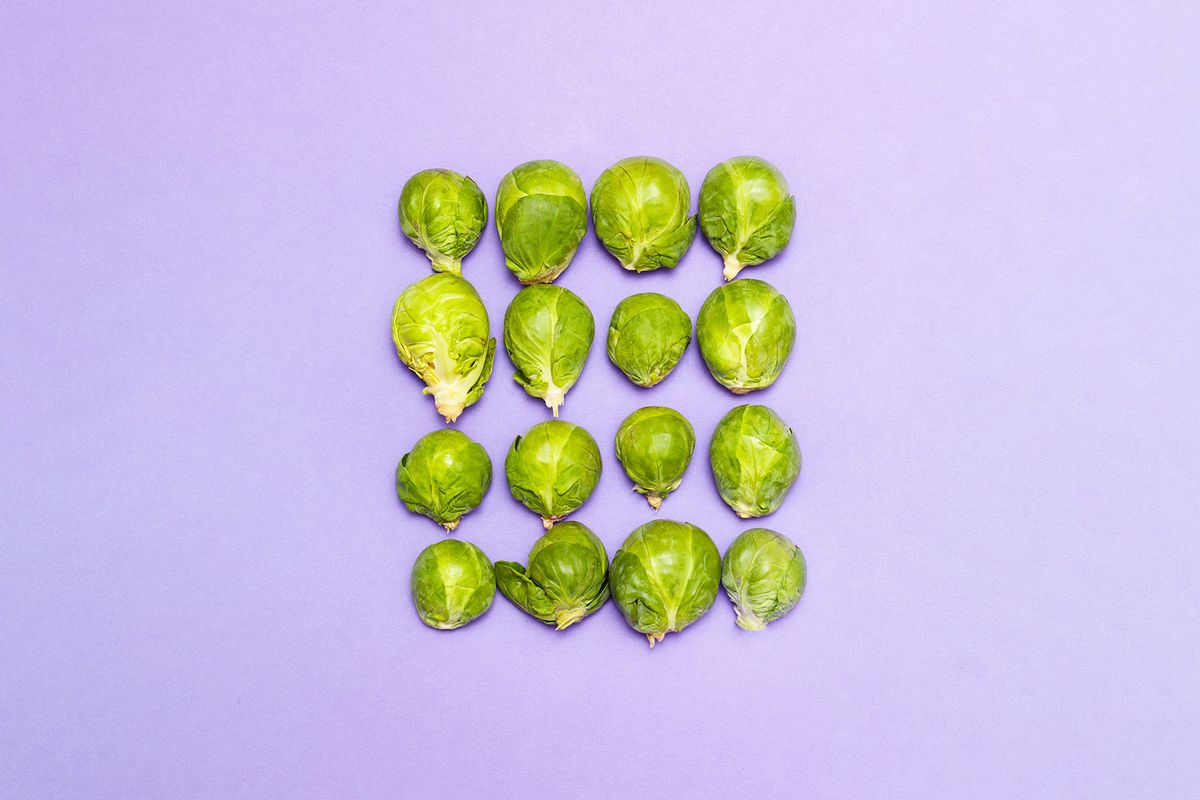I didn’t grow up in a brussels sprouts family, yet through the powerful force of cultural osmosis, I somehow grew up believing that they were always just a little gross. It’s not really a surprise why: Much like cafeteria lunches or liver and onions, brussels became a popular culinary punchline among the jungle gym set. Just the name evoked images of emotionless housewives boiling them over high-heat, rendering the little cruciferous vegetables bloated, soft and gaseous, destined to be scraped into the trashcan or offered to a family dog under the table.
But then sometime in the 2010s, alongside the explosion of New American and New Southern cuisine, brussels sprouts underwent some reputational repair. Chefs moved away from straight boiling them and started to slow-roast them in halves or quarters, coaxing out a really appealing caramelized sweetness that masked the vegetable’s inherent bitterness. They coated them in butter and bacon and maple syrup. And this happened over and over and over again until overpriced maple-glazed brussels were as much a cliché of hipster gastropub dining as Mason jar cocktails and food served on wooden planks. And the thing is — I loved them.
Whenever I’d go out to eat, I’d always order brussels sprouts if they were on the menu. I bugged chefs I knew about how they made theirs so good; at Fat Lamb, in Louisville, Ky., for instance, they glazed their brussels in a gochujang hoisin sauce, while Asheville’s former Gan Shan Station made Dan Dan-flavored brussels sprouts, inspired by the Dan Dan noodles recipe in the chef’s well-loved copy of “Mrs. Chiang's Szechwan Cookbook.”
I didn’t think much of my newfound love for the vegetable. If I had, I probably would have just chalked it up to changing tastes and better preparation — but it turns out it’s something deeper.
The brussels sprouts themselves are actually biologically different than when I was eating them (or avoiding eating them) as a kid. There was also a scientific reason that the vegetable came to be abhorred by many whose parents and grandparents had loved the vegetable.
“In the late 1960s, our industry switched over to mechanized harvesting, which required a plant that would mature fairly evenly over the entire stem,” Steve Bontadelli, a Brussels sprouts farmer, told MEL Magazine in 2021. “The Sakata seed company developed the first plants that would mature evenly, and they were beautiful and green with lots of production, but they were horribly bitter, and we turned off an entire generation,”
We need your help to stay independent
A few decades passed and then, in the early 1990s, a Dutch scientist named Hans van Doorn, who worked at a seed and chemical company called Novartis, was determined to figure out what chemical compounds made brussels sprouts so bitter.
As NPR reported in 2019, there were only a small handful of companies selling brussels sprouts seeds in the Netherlands, one of which was called Bejo Zaden. It held a key to solving van Doorn’s puzzle. "We have a whole gene bank here in our cellars, with all the possible Brussels sprouts varieties that were available from the past," Cees Sintenie, a plant breeder at Bejo Zaden, told the publication.
Researchers determined that some of the older varieties — hundreds of them, actually — stored in the “gene bank” had lower levels of two glucosinolates called sinigrin and progoitrin, the chemicals that made brussels sprouts so acrid.
In 1999, the scientists published their findings. Soon, plants grown from the old seeds were cross-pollinated with modern, high-yielding varieties, but it took years for any perceptible changes to really take hold.
"From then on, the taste was much better. It really improved," Sintenie said.
As the flavor has improved, so have sales. According to the Organic Produce Network, brussels sprouts sales increased by a staggering 47% from July 2018 to July 2019, , making brussels sprouts the third-fastest-growing organic produce item during that time, according to a research report by 210 Analytics commissioned by the Southeastern Produce Council.
So that’s how brussels sprouts have managed to make it back onto restaurant and family dining room tables all across the country. Maybe they’ll serve as a side dish for your holiday gatherings this year, too?
Read more
about Thanksgiving cooking



Shares